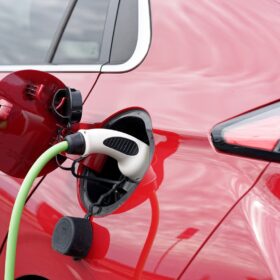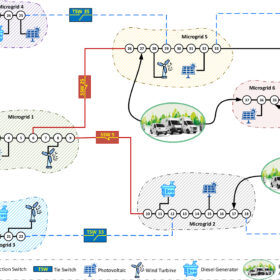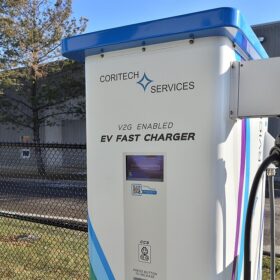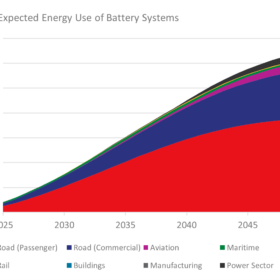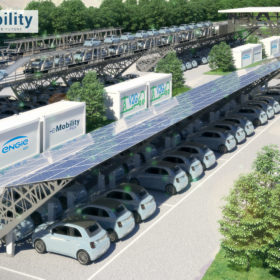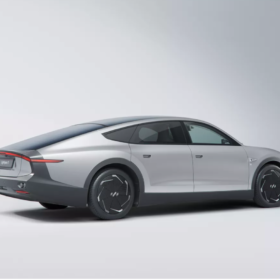Utrecht to host vehicle-to-grid car sharing service
Car manufacturer Renault, smart charging solutions provider We Drive Solar and the Netherlands’ leading car sharing platform MyWheels are teaming up to launch a car-sharing service in the city of Utrecht. The vehicles will utilize vehicle-to-grid technology, running on clean energy and feeding power back to the grid during high demand periods.
V2G tech can provide outage support, claim Australian researchers
Researchers at the Australian National University (ANU), Canberra, have shown that their response to a February 2024 grid emergency provides evidence that electric vehicles (EVs) equipped with vehicle-to-grid (V2G) systems could strengthen the grid during blackouts, marking a global first for such research.
Key takeaways from Advanced Battery Power + V2G conference
Battery research is advancing to address issues in the lithium-ion development process and concerns about safety and aging. Vehicle-to-everything (V2X) tech, meanwhile, is in the starting blocks, but interoperability is the key hurdle to achieving mass market penetration.
Weekend Read: Hanging in the balance
Battery storage revenues in Britain are well below historic highs but an appetite for storage capacity remains. Electricity system-operator modernization, increased competition, and new opportunities could all shape the future of British battery energy storage systems (BESS’).
Energy sharing in multi-microgrid systems with V2G
Researchers in Australia have developed a reconfigurable structure of a multi-microgrid to enhance the penetration of distributed energy resources in the presence of vehicle to grid technology (V2G) and found that both technical and economic aspects of the system have improved significantly.
Adaptive control of V2Gs incorporating EV owner expectations
Australian researchers have developed a novel adaptive decentralized control strategy for electric vehicle (EV) integration, incorporating both microgrid and EV-side conditions into the primary frequency control. They have proposed new indices to evaluate the charge and discharge capabilities of EV batteries, as well as the satisfaction levels of EV owners.
Role of hydrogen, batteries in UK’s decarbonization efforts
Hydrogen and battery technologies are expected to play an increasingly vital role in the UK’s transition to net zero by 2050, but the varying time scales of their rollouts are driving uncertainty in predicted market share profiles over time, according to a new report.
EV batteries alone could satisfy short-term grid storage demand
Low participation rates for vehicle-to-grid (V2G) tech of just 12% to 43% are needed to provide short-term grid storage demand throughout the world by as early as 2030, according to a group of Dutch and US researchers.
The mobility rEVolution: Lightyear becomes first to launch series production of solar EVs
Acciona Energia is setting up its first V2G network in Spain, ADS-TEC has unveiled a battery-based, all-in-one system with up to 300 kW of charging power, and Volkswagen is looking for a location for its first battery cell factory in North America.
The mobility rEVolution: PG&E obtains first V2G export rate for commercial EVs in US
PG&E has secured approval to set up a vehicle-to-grid (V2G) export compensation mechanism for commercial EV charging customers in California. Sono Motors is debuting its Sion solar electric vehicles in the US market, while Toyota and Jera are installing innovative second-life battery systems in Japan.

